Carl E. Olson's Blog, page 273
October 21, 2011
Table of Contents for "In Defense Of Sanity: The Best Essays of G.K. Chesterton"
John Herreid, jack of nearly all trades at Ignatius Press and master of them as well (especially when it comes to graphic design), was kind enough to send me the full Table of Contents for In Defense Of Sanity: The Best Essays of G.K. Chesterton, edited by Dale Ahlquist, Joseph Pearce, and Aidan Mackey. Here it is!
CONTENTS
Foreword by Aidan Mackey ix
Preface by Joseph Pearce xi[image error]
Introduction by Dale Ahlquist xv
1. Introduction to The Defendant (The Defendant, 1901)
2. A Defence of Skeletons (The Defendant, 1901)
3. On Certain Modern Writers and the Institution of the Family (Heretics, 1905)
4. On Running After One's Hat (All Things Considered, 1908)
5. Woman (All Things Considered, 1908)
6. A Piece of Chalk (Tremendous Trifles, 1909)
7. What I Found in My Pocket (Tremendous Trifles, 1909)
8. On Lying in Bed (Tremendous Trifles, 1909)
9. The Diabolist (Tremendous Trifles, 1909)
10. The Twelve Men (Tremendous Trifles, 1909)
11. The Shop of Ghosts (Tremendous Trifles, 1909)
12. The Romantic in the Rain (A Miscellany of Men, 1912)
13. The Mad Official (A Miscellany of Men, 1912)
14. The Mystagogue (A Miscellany of Men, 1912)
15. The Architect of Spears (A Miscellany of Men, 1912)
16. Don't (Daily News, May 7, 1910)
17. The Mystery of the Mystics (Daily News, August 30, 1901)
18. A Much Repeated Repetition (Daily News, March 26, 1904)
19. The Maxims of Maxim (Daily News, February 25, 1905)
20. The Book of Job (GKC as MC, 1929)
21. Cheese (Alarms and Discursions, 1910)
22. On Gargoyles (Alarms and Discursions, 1910)
23. The Fading Fireworks (Alarms and Discursions, 1910)
24. The Furrows (Alarms and Discursions, 1910)
25. The Meaning of Dreams (Lunacy and Letters, 1958)
26. On Being Moved (Lunacy and Letters, 1958)
27. The Pickwick Papers (Appreciations and Criticisms of the Works of Charles Dickens, 1911)
28. The Bluff of the Big Shops (The Outline of Sanity, 1926)
29. On Architecture (Generally Speaking, 1928)
30. On Shakespeare (Generally Speaking, 1928)
31. The Slavery of Free Verse (Fancies vs. Fads, 1923)
32. Turning Inside Out (Fancies vs. Fads, 1923)
33. On Turnpikes and Mediævalism (All I Survey, 1933)
34. The Drift from Domesticity (The Thing, 1929)
35. On Vulgarity (Come to Think of It, 1930)
36. On a Humiliating Heresy (Come to Think of It, 1930)
37. On Original Sin (Come to Think of It, 1930)
38. On Jane Austen in the General Election (Come to Think of It, 1930)
39. On Essays (Come to Think of It, 1930)
40. On Evil Euphemisms (Come to Think of It, 1932)
41. A Plea for Prohibition (Sidelights, 1932)
42. The American Ideal (Sidelights, 1932)
43. Marriage and the Modern Mind (Sidelights, 1932)
44. Magic and Fantasy in Fiction (Sidelights, 1932)
45. On the New Prudery (Avowals and Denials, 1934)
46. On the Return of the Barbarian (Avowals and Denials, 1934)
47. On Man: Heir of All the Ages (Avowals and Denials, 1934)
48. On the Instability of the State (Avowals and Denials, 1934)
49. The Romance of Childhood. (All is Grist, 1931)
50. The Surrender upon Sex (The Well and the Shallows, 1935)
51. Reflections on a Rotten Apple (The Well and the Shallows, 1935)
52. Babies and Distributism (The Well and the Shallows, 1935)
53. The Rout of Reason (Where Are the Dead? 1928)
54. Mary Queen of Scots (Revaluations, 1931)
55. George MacDonald (GKC as MC, 1929)
56. Tolerating Other Religions (Illustrated London News, May 31, 1913)
57. The Efficiency of the Police (Illustrated London News, April 1, 1922)
58. About Beliefs (As IWas Saying, 1936)
59. The Common Man (The Common Man, 1950)
60. Two Stubborn Pieces of Iron (The Common Man, 1950)
61. The Revival of Philosophy—Why? (The Common Man, 1950)
62. If I Had Only One Sermon to Preach (The Common Man, 1950)
63. Scipio and the Children (The Spice of Life, 1964)
64. The Philosophy of Islands (The Spice of Life, 1964)
65. The Artistic Side (The Coloured Lands, 1938)
66. What Is Right with the World (The Apostle and the Wild Ducks, 1975)
67. The Spice of Life (The Spice of Life, 1964)
New: "A Bitter Trial: Evelyn Waugh and John Carmel Cardinal Heenan on the Liturgical Changes"
Now available from Ignatius Press:
[image error] A Bitter Trial: Evelyn Waugh and John Carmel Cardinal Heenan on the Liturgical Changes
Expanded Editon, Edited by Dom Alcuin Reid
Foreword by Joseph Pearce | Afterword by Clare Asquith, Countess of Oxford
• Also available in Electronic Book Format
English author Evelyn Waugh, most famous for his novel Brideshead Revisited, became a Roman Catholic in 1930. For the last decade of his life, however, Waugh experienced the changes being made to the Church's liturgy to be nothing short of "a bitter trial". In John Cardinal Heenan, Waugh found a sympathetic pastor and somewhat of a kindred spirit.
This volume brings together the personal correspondence between Waugh and Heenan during the 1960s, a trying period for many faithful Catholics. It begins with a 1962 article Waugh wrote for the Spectator followed by a response from then Archbishop Heenan, who at the time was a participant at the Second Vatican Council. These and the other writings included in this book paint a vivid picture of two prominent and loyal English Catholics who lamented the loss of Latin and the rupture of tradition that resulted from Vatican II.
In the light of the pontificate of Pope Benedict XVI, many Catholics are looking again at the post-conciliar liturgical changes. To this "reform of the reform" of the liturgy now underway in the Roman Catholic Church, both Heenan and Waugh have much to contribute.
Alcuin Reid is a cleric of the Diocese of Fréjus-Toulon, France, and a liturgical scholar and author. His principal work, The Organic Development of the Liturgy carries a preface by Joseph Cardinal Ratzinger, now Pope Benedict XVI.
Joseph Pearce is a popular literary biographer whose works include The Unmasking of Oscar Wilde, Tolkien: Man and Myth, and The Quest for Shakespeare.
Clare Asquith, Countess of Oxford is the author of Shadowplay: The Hidden Beliefs and Coded Politics of William Shakespeare.
October 20, 2011
New: "A Bitter Trial Evelyn Waugh and John Carmel Cardinal Heenan on the Liturgical Changes"
Now available from Ignatius Press:
[image error] A Bitter Trial: Evelyn Waugh and John Carmel Cardinal Heenan on the Liturgical Changes
Expanded Editon, Edited by Dom Alcuin Reid
Foreword by Joseph Pearce | Afterword by Clare Asquith, Countess of Oxford
• Also available in Electronic Book Format
English author Evelyn Waugh, most famous for his novel Brideshead Revisited, became a Roman Catholic in 1930. For the last decade of his life, however, Waugh experienced the changes being made to the Church's liturgy to be nothing short of "a bitter trial". In John Cardinal Heenan, Waugh found a sympathetic pastor and somewhat of a kindred spirit.
This volume brings together the personal correspondence between Waugh and Heenan during the 1960s, a trying period for many faithful Catholics. It begins with a 1962 article Waugh wrote for the Spectator followed by a response from then Archbishop Heenan, who at the time was a participant at the Second Vatican Council. These and the other writings included in this book paint a vivid picture of two prominent and loyal English Catholics who lamented the loss of Latin and the rupture of tradition that resulted from Vatican II.
In the light of the pontificate of Pope Benedict XVI, many Catholics are looking again at the post-conciliar liturgical changes. To this "reform of the reform" of the liturgy now underway in the Roman Catholic Church, both Heenan and Waugh have much to contribute.
Alcuin Reid is a cleric of the Diocese of Fréjus-Toulon, France, and a liturgical scholar and author. His principal work, The Organic Development of the Liturgy carries a preface by Joseph Cardinal Ratzinger, now Pope Benedict XVI.
Joseph Pearce is a popular literary biographer whose works include The Unmasking of Oscar Wilde, Tolkien: Man and Myth, and The Quest for Shakespeare.
Clare Asquith, Countess of Oxford is the author of Shadowplay: The Hidden Beliefs and Coded Politics of William Shakespeare.
"To have true justice it is necessary to arrive at gratuitousness and solidarity."
Pope Benedict XVI remarks directly upon the global economic crisis in an address given this past Saturday to participants in the annual conference of the Centesimus Annus Foundation:
As you noted in your addresses, in the difficult situation we are experiencing, we are unfortunately witnessing a crisis in work and in the economy, which is accompanied by a crisis in the family: the conflicts of couples, generational conflicts, conflicts occasioned between the times of the family and of work, occupational crises, create a complex situation of unease that influences social living itself.
A new harmonious synthesis between the family and work is therefore necessary, and the Social Doctrine of the Church can offer a valuable contribution. In the encyclical Caritas in Veritate I wished to highlight that the family model of the logic of love, of gratitude, and of gift goes together with a universal dimension. Commutative justice -- "give to have" -- and distributive justice -- "give to owe" – are not sufficient in social living. To have true justice it is necessary to arrive at gratuitousness and solidarity. "Solidarity is first and foremost a sense of responsibility on the part of everyone with regard to everyone, and it cannot therefore be merely delegated to the State. While in the past it was possible to argue that justice had to come first and gratuitousness could follow afterwards, as a complement, today it is clear that without gratuitousness, there can be no justice in the first place. (...) Charity in truth, in this case, requires that shape and structure be given to those types of economic initiative which, without rejecting profit, aim at a higher goal than the mere logic of the exchange of equivalents, of profit as an end in itself" (No. 38).
"The market of gratuitousness does not exist, and attitudes of gratuitousness cannot be established by law. Yet both the market and politics need individuals who are open to reciprocal gift" (No. 39). It is not the duty of the Church to define the ways to address the present crisis. However, Christians have the duty to denounce evils, to attest to and to keep alive the values on which the dignity of the person is founded, and to promote those ways of solidarity that foster the common good, so that humanity will become the family of God.
Read the entire address on ZENIT.
Encyclicals by Pope Benedict XVI:
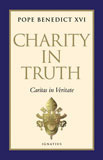


My pick for Most Bizarre, Apocalyptic-Mocking Video of the Week
Uh. Um. Hmm. This is either weird and funny, or it is a clear (and animated!) sign that we are indeed on the brink of cultural collapse and cosmic disaster:
Just a quick reminder that the world will be annihilated tomorrow!
Golly, I nearly forgot, what with the World Series, the Wall Street protests, and clipping my fingernails: the end of the world will be taking place tomorrow, Friday, October 21st. Don't believe me? Well, you'll at least believe the folks at Family Radio, right?
Thus we have learned that except for a somewhat different understanding of the words "earthquake" and "rapture" or "catching up" no other past teachings of Judgment Day or the end of the world have been changed. The time line, the certainty of it, the proofs, and the signs are all precisely the same. No other past teachings have been changed or modified. Indeed, on May 21 Christ did come spiritually to put all of the unsaved throughout the world into judgment. But that universal judgment will not be physically seen until the last day of the five month judgment period, on October 21, 2011.
We have also learned that God is still teaching that God has no pleasure in the death of the wicked and will not punish the wicked beyond what is called for in Deuteronomy 25. That is, there is a distinct limit to God's wrath.
Thus we can be sure that the whole world, with the exception of those who are presently saved (the elect), are under the judgment of God, and will be annihilated together with the whole physical world on October 21, 2011, on the last day of the present five months period. On that day the true believers (the elect) will be raptured. We must remember that only God knows who His elect are that He saved prior to May 21. [emphasis added because, well, it seems kind of important]
Oh, also: the Oregon Ducks will be playing the Colorado Buffalo on Saturday, October 22nd, the day after the world ends. And in case you are wondering, I do believe that Colorado (who is a 31 point underdog) has a better chance of beating the Ducks than the Family Radio folks do of prophecying the end of the world. Truth be told, if Oregon does lose on Saturday, some people around here will feel like it is the end of the world. But since that would be on Saturday and not Friday, it wouldn't count.
• Rapture, Rinse, Repeat (May 24, 2011)
• Call for Captions for a May 22nd, 2011 Billboard (May 21, 2011)
• The Rapture: A short history and some basic facts (May 20, 2011)
• The Revelatory Quote of the Day... (May 20, 2011)
• A few thoughts about the not-so-rapturous May 21st Harold Camping Trip... (May 19, 2011)
"This book is at once extraordinarily deep and wonderfully practical."
Dr. Jeff Mirus of Catholic Culture has a detailed review of the Ignatius Press edition of the classic work, Abandonment to Divine Providence (With Letters of Father de Caussade on the Practice of Self-Abandonment), by Jean-Pierre de Caussade, S.J.:
It is because his subject is treated so comprehensively, both in theory and in practice, marked by both particular questions and varying spiritual stages on the way, and divided between considerations of both the virtue and the state of 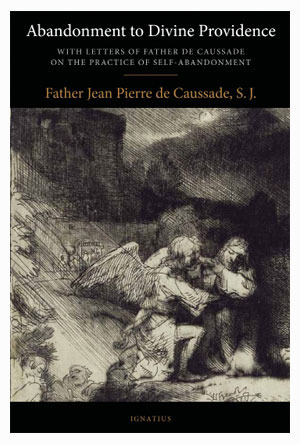 abandonment, that Fr. de Caussade's advice is so broadly applicable. Though prepared specifically for religious, who are doubtless more often called to what Fr. de Caussade described as the state of abandonment, the treatment of abandonment as a necessary virtue obviously applies to lay people as well. And the various stages of spiritual growth, along with the different problems encountered in these various stages, at least potentially apply to all devout souls, wherever they may be found.
abandonment, that Fr. de Caussade's advice is so broadly applicable. Though prepared specifically for religious, who are doubtless more often called to what Fr. de Caussade described as the state of abandonment, the treatment of abandonment as a necessary virtue obviously applies to lay people as well. And the various stages of spiritual growth, along with the different problems encountered in these various stages, at least potentially apply to all devout souls, wherever they may be found.
A survey of the main sections of the second part of the book reveal something of its scope:
• In dealing with the love of the virtue of abandonment, Fr. de Caussade considers it as a short way to perfection, happiness, peace and liberty. This leads to meditations on providence, community, dependence on God, God's goodness, continued troubles, and good works.
• In treating of the exercise of the virtue of abandonment, he touches on no fewer than thirty-seven points, including such things as general rules, useless fears, submission and confidence, simplicity, acceptance of duties, patience with oneself, and how to treat consolations.
• The section on obstacles to abandonment addresses such problems as vanity, illusions, attachments, intemperate zeal, and discouragement.
• In the remaining four sections, Fr. de Caussade covers similar particular points relating to aridities, weaknesses and weariness; trials, sufferings and privations; fear of the anger of God; the last agony and a mystical death.
This book is at once extraordinarily deep and wonderfully practical. It is superbly organized—subdivided into titled sections which generally run from just one to three pages, making the presentation perfect for daily spiritual reading. ...
If you do not yet own or have not yet used this magnificent book, you should take advantage of the new Ignatius edition and purchase it. And if you have already gone through it some years past, you are probably now at a different stage of spiritual development, and so you may find it is time to make use of Fr. de Caussade once again. In fact, that is exactly what I intend to do.
Read the entire review, "Abandon Yourself to this Book", at CatholicCulture.org. And read the opening pages of the book on this blog. In addition to the paperback edition, Abandonment to Divine Providence is also available as an Electronic Book Downland and as an Audio Book on CD.
New: "In Defense Of Sanity: The Best Essays of G.K. Chesterton"
Now available from Ignatius Press:
[image error]In Defense Of Sanity: The Best Essays of G.K. Chesterton
Edited by Dale Ahlquist, Joseph Pearce, and Aidan Mackey
G.K. Chesterton was a master essayist. But reading his essays is not just an exercise in studying a literary form at its finest, it is an encounter with timeless truths that jump off the page as fresh and powerful as the day they were written.
The only problem with Chesterton's essays is that there are too many of them. Over five thousand! For most GKC readers it is not even possible to know where to start or how to begin to approach them.
So three of the world's leading authorities on Chesterton - Dale Ahlquist, Joseph Pearce, Aidan Mackey - have joined together to select the "best" Chesterton essays, a collection that will be appreciated by both the newcomer and the seasoned student of this great 20th century man of letters.
The variety of topics are astounding: barbarians, architects, mystics, ghosts, fireworks, rain, juries, gargoyles and much more. Plus a look at Shakespeare, Dickens, Jane Austen, George MacDonald, T.S. Eliot, and the Bible. All in that inimitable, formidable but always quotable style of GKC. Even more astounding than the variety is the continuity of Chesterton's thought that ties everything together. A veritable feast for the mind and heart.
While some of the essays in this volume may be familiar, many of them are collected here for the first time, making their first appearance in over a century.
G. K. Chesterton was one of the most beloved writers of the 20th century, quoted more often than any other writer. He wrote dozens of popular books on numerous topics, as well as thousands of essays. His books include Orthodoxy, The Everlasting Man, The Man Who Was Thursday, Father Brown Stories and many more.
Dale Ahlquist is the President of the G. K. Chesterton Society, and the author of three books on Chesterton, including The Apostle of Common Sense and Common Sense 101.
For more books about and by Chesterton, visit his Ignatius Insight Author Page:
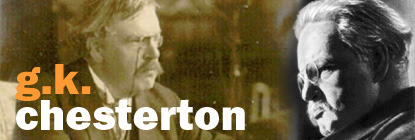
G. K. Chesterton (1874-1936) Author Page | Ignatius Insight
• Articles By and About G. K. Chesterton
• Ignatius Press Books about G. K. Chesterton
• Books by G. K. Chesterton
October 19, 2011
From Behind the Iron Curtain to the Belly of the Beast
[image error]
From Behind the Iron Curtain to the Belly of the Beast | Eva Muntean | Ignatius Insight | October 19, 2011
Editor's Note: This talk was presented on September 17, 2011, at the Indiana Catholic Women's Conference.
The title of my talk today is "From Behind the Iron Curtain to the Belly of the Beast." The title refers to my family's journey from Communist Hungary, where I was born, to San Francisco, where I now live.
Coming from a country where faith was persecuted, and a simple public prayer was dangerous, I'd like to take a few minutes to publicly thank Our Blessed Mother for allowing us to live in this great country. Please join me: "Hail Mary..."
As I said, my journey begins behind the Iron Curtain. I was born in a country that was ruled by a system of government called Communism. I am sure all of you are familiar with this system of government since America waged a cold war against the menace of Communism for a great deal of our lifetime. But not many of you know what it was like to be born in a Communist country and why people risked their lives and the lives of their children to escape.
So let me start at the beginning of my life. My parents were both educated by the state to be engineers. For my father that was the perfect career choice. Working with diesel engines was his passion. My mother hated engineering. She was forced into the career because the state needed engineers. They worked six days a week from sunrise to sunset, sometimes longer. Their combined income barely put food on the table.
I was their first child. The State gave my mother a twelve weeks maternity leave, and then she was forced to hand me over to a state-run daycare.
A year later my sister was born. My mother had all kinds of medical complications with her birth and nearly died. My parents were too poor to bribe the nurses and doctors to go beyond the mandatory care so my mother burned with fever, near delirium, yet no one offered her even a glass of water. My father, of course, was at work. My grandmother came to the hospital, found her daughter near death, and raised a loud protest, which finally forced the doctors to treat her. So much for socialized medicine. After twelve weeks my sister joined me in the daycare.
Sometimes we were allowed to go spend a few days with my father's parents, who had a little house with a small patch of land where my grandmother grew grapes and raised rabbits. She would go without food so she could buy such luxury items as a piece of cloth to sew my sister and me a skirt, or a little cocoa to make us chocolate milk on Sunday mornings.
Celebrating the Saints with 20% off select titles
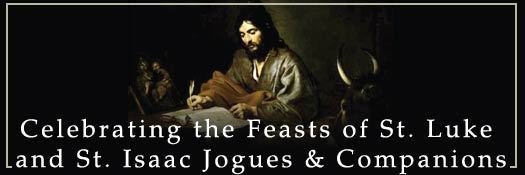
Celebrating the Saints with 20% off!
Offer ends Tuesday, October 25th, 2011 at 12:00 midnight EST. These prices are available online only through Ignatius.com
Yesterday, October 18, marked the feast day of Saint Luke. Known as the patron saint of surgeons and physicians, St. Luke is also considered one of the Four Evangelists. Today is the feast of St. Isaac Jogues & Companions. St. Isaac was a French Jesuit missionary to Canada, who was martyred in 1646. Both men lived a life dedicated to following Christ and to honor these two saints, as well as many others, Ignatius Press is offering 20% off the books listed below the fold.
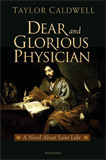 Dear and Glorious Physician
Dear and Glorious Physician
A Novel about Saint Luke
Taylor Caldwell
Acclaimed novelist Caldwell presents a deeply moving and eloquent portrait of St. Luke. Her travels in the Holy Land and many years of meticulous research made this work a fully developed portrayal of a complex and brilliant man.
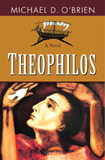 Theophilos
Theophilos
A Novel
Michael O'Brien
St. Luke addressed his Gospel and Acts to a man named Theophilos: but who was he? In O'Brien's new tale he is Luke's skeptical adoptive father, concerned by this "Christos" in Luke's writings and about his newly zealous son's fate. He embarks on a search to bring Luke home—and runs into the unexpected dimensions of his very self. Also available as an e-book or audio download.
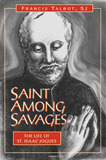 Saint Among the Savages
Saint Among the Savages
The Life of St. Isaac Jogues
Francis Xavier Talbot, S.J.
Against a background of bloody wars between great Indian nations passes the magnificent figure of the Jesuit, Isaac Jogues, intrepid pioneer, victim of horrific cruelties, and saint.
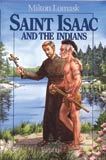 Saint Isaac and the Indians
Saint Isaac and the Indians
Milton Lomask
This is the story of Isaac Jogues, martyr and Saint. It tells of his dangerous and difficult life among the Indian tribes in their tree-dark country--of his work of conversion, of his efforts to teach the Indians rules of health and to set them free from their superstitious belief in the power of their medicine men. This is the inspiring story of his enslavement by the Mohawks, his daring escape, and finally, his death as a martyr for the Faith
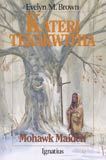 Kateri Tekakwitha
Kateri Tekakwitha
Mohawk Maid
Evelyn Brown
This is the inspiring story of Blessed Kateri Tekakwitha, a holy young Indian woman who was converted to Christianity by the French missionaries led by Saint Isaac Joques during the 1600s.
[image error]A Pilgrim's Journey
The Autobiography of St. Ignatius of Loyola
Joseph N. Tylenda, S.J.
This autobiography of St. Ignatius spans 18 years of his life—from his wounding at Pamplona through his conversion, his studies and his journey to Rome to place his community at the disposal of the Pope. Also available as an e-book.
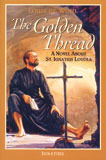 The Golden Thread
The Golden Thread
A Novel about St. Ignatius Loyola
Louis de Wohl
De Wohl describes the story of St. Ignatius Loyola's conversion and pilgrimage with the colorful and dangerous history of Spain and Italy in the early sixteenth century. Also available as an e-book.
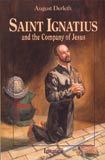 Saint Ignatius and the Company of Jesus
Saint Ignatius and the Company of Jesus
August Derleth
Saint Ignatius and the Company of Jesus tells the exciting, dramatic story of St. Ignatius of Loyola and the order he founded, the Society of Jesus. As a young man, Ignatius had dreams of an adventurous life as a soldier. His dreams, however, did not come true the way he had hoped.
Lay Siege to Heaven
A Novel of St. Catherine of Siena
Louis de Wohl
De Wohl devotes his talents to one of the most extraordinary women of all time, St. Catherine of Siena. She persuaded the Pope to return to Rome; she performed miracles, she received the stigmata, she drew about her a crowd of devoted people. She really did lay siege to heaven. Also available as an e-book.
Citadel of God
A Novel of Saint Benedict
Louis de Wohl
This historical novel tells the dramatic story of St. Benedict, the father of Western monasticism, who played a major role in the Christianization of 6th century Europe. Also available as an e-book.
The Restless Flame
A Novel about St. Augustine
Louis de Wohl
A stirring novel which deals reverently but realistically with the fascinating life and era of St. Augustine. In his vigorous and inimitable style, de Wohl tells the story of St. Augustine's transformation from a vain, sensual youth to the brilliant, devout writer, theologian and bishop. Also available as an e-book.
The Quiet Light
A Novel about St. Thomas Aquinas
Louis de Wohl
De Wohl presents a stimulating historical novel about the great St. Thomas, set against the violent background of the Italy of the Crusades. De Wohl weaves an intricate, colorful tapestry of love, violence and piety in bringing this great saint to life. Also available as an e-book.
The Joyful Beggar
A Novel of St. Francis of Assisi
Louis de Wohl
In this novel of St. Francis of Assisi, de Wohl turns his famed narrative skill to the story of the soldier and merchant's son who might have been right-hand man to a king, but became instead the most beloved of all saints. Also available as an e-book.
Set All Afire
A Novel of St. Francis Xavier
Louis de Wohl
De Wohl takes us into the mind and heart of this great missionary and saint who went by order of St. Ignatius to "set all afire'' in the Orient. The book captures the dramatic struggles and inspiring zeal of this remarkable saint, giving at the same time an enthralling picture of the age in which he lived. Also available as an e-book.
The Life of St. Philip Neri
Antonio Gallonio
"The Apostle of Rome", set in motion a great renewal of faith at the heart of the Church during the 1500's. This is the first ever English translation of this book, published originally in the Jubilee Year 1600. Also available as an e-book.
Therese of Lisieux
Her Family, Her God, Her Message
Fr. Bernard Bro
Fr. Bernard Bro sets forth those aspects of her life, personality, and writing that mark Thérèse as one of the great exponents of Catholic doctrine. What she offers in her life and in her writing, he claims, is "one of the most certain and simplest evangelical shortcuts ever proposed." Illustrated with photos.
Saint Francis of Assisi
A Biography
Ivan Gobry
Ivan Gobry, Ph.D., takes on the task of revealing the real Saint Francis, the man who abandoned wealth and chose to live a beggar's life.
For Additional Sale Items Click HERE!
Carl E. Olson's Blog
- Carl E. Olson's profile
- 20 followers



